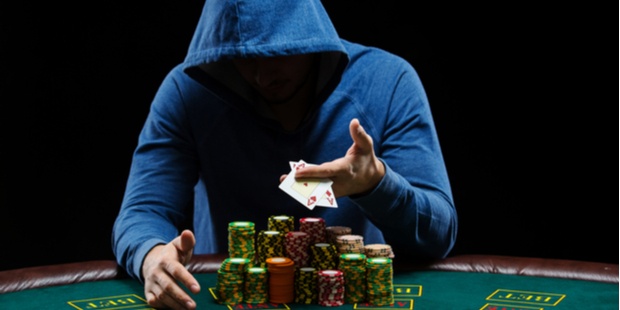In most cases, believing in yourself and your abilities is a good thing. A high sense of self-worth can take you far in life, but when you play poker online – confidence can easily turn into overconfidence.
But why is overconfidence so bad for poker players? How can it affect your chances of winning? And what can you do to avoid the negative effects of extremely high levels of confidence? We will answer all those questions in this Intertops poker guide.
The Effects of Overconfidence on Your Poker Play
Poker is a complex game, and you have to be in possession of a specific skill set to be successful at it. On the one hand, you need to have a decent amount of self-assurance, as hesitation can be seen as a weakness by other players. On the other hand, you have to constantly analyze your moves and question your decisions to get better at the game.
Balancing confidence and self-checking is not easy, as you can find yourself doubting your abilities too much – or not enough. In both cases, you might make mistakes simply because of your inadequate feeling of self-worth, which is a shame, as those can be easily avoided.
According to Tommy Angelo, Author of Elements of Poker, 75% of poker players overestimate their skills, due to cognitive bias. And when you’re sure you can do no wrong, it can lead to two serious issues:
- You might misinterpret your opponent’s move and make bad decisions. It doesn’t matter what the other players do – whether they check, call or raise – you will see their moves as a sign of weakness because you’re 100% sure you have the better hand. You won’t take a moment to think about your situation, analyze your chances of winning, etc. In most cases, that means you will keep raising as much as you can, putting a lot of money on the table. So, if it turns out your competitors had stronger cards, you might lose more money than you should have.
- You won’t be ready to learn from your mistakes. When overconfident players lose, they often attribute that to their opponent’s luck. They rarely stop to think that maybe their opponent’s skills are superior to their own. And if you never stop to consider the fact you might be wrong, you won’t have a chance to learn from your previous error in judgment. Therefore, you won’t be able to move forward and improve your gameplay.

How to Deal with Overconfidence
Now that you understand how too much confidence can hinder your ability to play poker, only one question remains: what can you do about it?
First of all, you need to accept the fact you have a problem. Once you’re aware of your tendency to overvalue your abilities, you can actively deal with the situation.
You probably won’t be able to change your way of thinking straight away, but when you play, you can schedule breaks during which you will assess the situation. Ask yourself:
- What kind of player is my opponent?
- Does he tend to bluff or not?
- Is he bluffing now?
- What kind of hand can my opponent have?
- Is my hand strong enough to beat most hands?
- How much money am I willing to put on the line?
Answering those questions won’t take too much time, but with their help, you will be able to make a calculated decision as opposed to blindly trusting your gut feeling.
Keep Cool and Place Your Bets!
Moderate levels of confidence can be helpful in poker, but overconfidence can lead to some issues. Learning how to deal with that is important if you want to become a better poker player!



 Twitter
Twitter Facebook
Facebook Youtube
Youtube